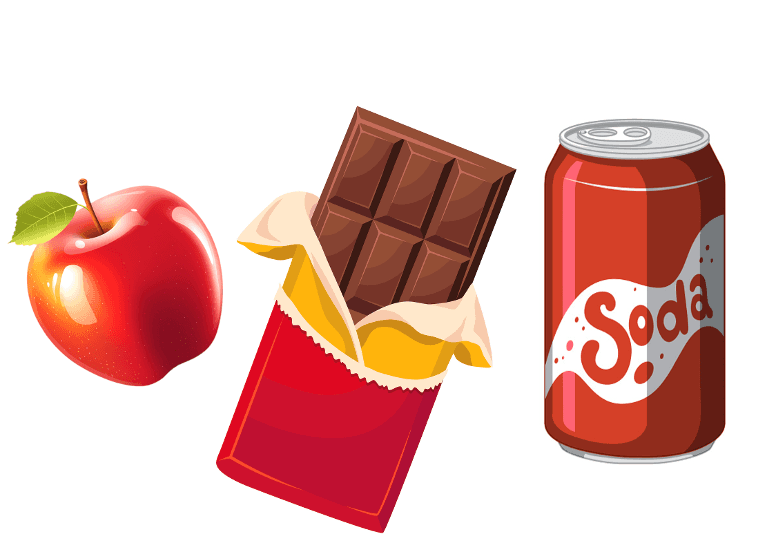
Should you ban sugar if you don’t want tooth decay?
Most people like a sweet treat every now and then, but it is also common knowledge nowadays, that sugar causes tooth decay. Does that mean we should ban sugary foods completely from our diet?
This is an extreme solution that many might find challenging. The good news is that completely cutting out sugar is not necessary to have healthy teeth.
There are different types of sugars
The type of sugars shown to cause increased tooth decay are known as free sugars. The World Health Organisation defines free sugars as sugars added to foods by manufacturers, cooks or consumers and sugars naturally present in honey, syrups, fruit juices and fruit juice concentrates. The new World Health Organization (WHO) guideline advocates to reduce free sugar consumption below 10% of the energy intake (10 E%) or even below 5 E% of the diet. As opposed to free sugars, sugar that is naturally present in foods like fruit and milk are called intrinsic sugars.
There is a lower association between intrinsic sugars and decay. The levels of intrinsic sugars in foods such as fruit and unsweetened milk, are relatively low. These foods are also not usually consumed to the same levels as manufactured sweet snacks. It is easier to snack on 10 lollies in 1 day than to eat 10 apples.
How does sugar cause decay?
Decay occurs because there are bacteria present in the oral cavity coating all the surfaces inside the mouth. The bacterial film covering the teeth surfaces is known as plaque. When the sugar from sweet foods dissolves into the saliva, bacteria in the plaque will convert it into acids. The acid erodes the mineral from the enamel of the teeth. The enamel becomes more porous and soft and eventually breaks down. The weakened enamel loses its protective barrier function, allowing bacteria to penetrate into the tooth forming decay.
Will eating any amount of sugar cause decay?
The answer is: not necessarily. For decay to occur, the tooth has to be exposed for long enough to acid produced from the sugar. Eating just one piece of chocolate in the day is unlikely to cause decay as the sugar is dissolved and washed away in the saliva once the chocolate is swallowed. The acid produced is also eventually neutralised by the saliva and does not last long enough to damage the tooth enamel.
However, if the production of acid is continuous, like when someone is sucking on a lolly that dissolves slowly over a long period of time, the enamel is eventually dissolved and the decay process is initiated.
It is therefore not the actual amount of sugar, but the duration and frequency of the sugar present in the oral environment, that determines if decay occurs.
Frequency and duration of sugar consumption is what determines risk of decay.
A person who eats a bar of chocolate quickly during the day after their lunch is less likely to get decay than someone who continuously snacks on chocolate throughout the day. Foods high in free sugars and which are also sticky are more likely to cause decay as the food debris can stay stuck around the teeth for a long time. Sipping on sweetened and acidic drinks all day long will also increase the risk of decay.
How can you enjoy sweets without getting tooth decay?
It is advised to avoid frequent snacking on sweet foods during the day. It is best to consume the sweet food and drink in one go. Rinsing the mouth or drinking tap water after eating something sweet will also help wash away the acid produced from the sugar.
Reduce the frequency of snacking and choose fresh fruits and vegetables, as although they contain intrinsic sugars, are not likely to cause decay. Avoid sipping on fruit juices, soft drinks and sports drinks throughout the day and drink tap water when thirsty. Have the sweets you enjoy straight after your lunch or dinner but avoid them between your meals.
In this way, you can continue to enjoy the sweets you like and avoid tooth decay and fillings.

Located in Melbourne Inner North, The Melbourne Smile Clinic is your dentist for Northcote, Thorbury, Fairfield, Westgarth, Clifton Hill, Preston and surrounding suburbs.
For more information or for an appointment, contact us on 9078 4471 or send us a message here
